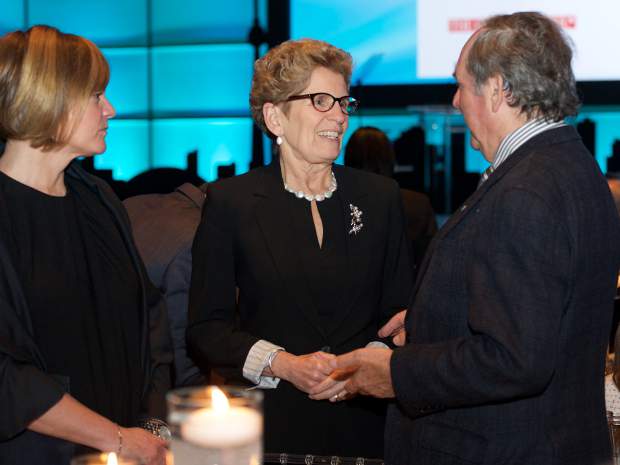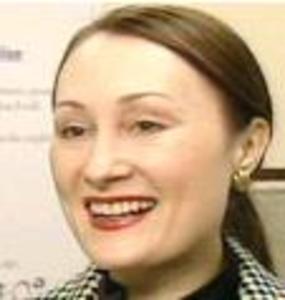Is Quebec no longer the most corrupt province in Canada? That’s the question many Ontarians are asking themselves this week, after learning about the fundraising practices of the Ontario Liberal party.
The Toronto Star recently reported that Liberal cabinet ministers were assigned secret “targets” of up to $500,000 by Bobby Walman, president and chief fundraising officer of the Ontario Liberal Fund. When contacted by the paper, Walman said he was too busy to talk, then refused to answer subsequent emails. As for Premier Kathleen Wynne, she did not deny the targets, and characterized events such as the $6,000-a-head reception featuring her in “one-on-one conversations” with attendees as “part of the democratic process.”
Since then, Wynne has backtracked somewhat and now promises to introduce political finance reforms this fall. Such reforms are long overdue, given that former prime minister Stephen Harper’s federal Conservative government cleaned up Ottawa’s act in 2006, after the Liberal Sponsorship Scandal. The government passed the federal Accountability Act, which limited donations, obliged public disclosure and closed the revolving door between government and lobbying firms.
Similarly, Quebec’s Liberal government enacted reforms in 2013 after its most recent political fundraising debacle. That resulted in the creation of the provincial Charbonneau Commission, which held hearings into alleged corruption involving political donations and construction contracts. Recently, the former deputy premier of Quebec and six other political officials were charged with a slew of offences, including fraud and conspiracy.
In Ontario, no links have been established between deals and donations as of yet. But some of them give off a serious stink. The Bank of Nova Scotia, for example promoted a fundraiser for the two Ontario cabinet ministers in charge of privatizing Hydro One, just one month after an IPO was issued to sell 15 per cent of the electricity company for $1.8 billion. The $7,500-a-plate fundraiser raked in $165,000 for Energy Minister Bob Chiarelli and Finance Minister Charles Sousa, both of whom were featured guests, and was attended by 22 executives representing the banks in the Hydro One syndicate, who collectively made $29.3 million from the IPO, according to Globe and Mail reporter Adrian Morrow.
Other events routinely promise access to decision makers, in exchange for cash. As detailed by the Star, the party’s annual Heritage Dinner sells “Victory Tables” for $18,000 a pop and donors get access to a private reception with the premier. An event organized by the Liberal Fund and the Ontario Long Term Care Association (OLTCA) offered “an unprecedented opportunity only for OLTCA members” to “discuss the sector with the minister, up close and personal.”
For all of Wynne’s moralizing on other matters — including the recent introduction of beer in grocery stores — she did not say a thing about running the political equivalent of an escort service, until recent revelations forced her hand.
And while most of the mud is flying Wynne’s way, the Ontario Liberals aren’t the only paid dates in town. Last month, the Alberta Wildrose Party asked the provincial ethics commissioner to investigate Alberta Premier Rachel Notley’s participation in a private, $9,975-per-plate Toronto fundraiser that benefited the Ontario NDP. The event at the Fairmont Royal York Hotel was attended by 20 members of the Ontario business and labour communities and promoted the Alberta premier as a featured guest. As for the Ontario Progressive Conservatives, their leader, Patrick Brown, stated that, “I have long argued that we need to clean up political party fundraising in Ontario, and I stand by that,” but the PCs also rely heavily on corporate support for their campaigns.
In Ottawa and Quebec, pay-for-play no longer exists. The federal rules were changed to ban donations from companies and unions, and limit individual donations to $1,525 to each party, plus $1,525 to all the registered associations and candidates of each party. In Quebec, individuals are limited to contributions of $100 a year and an additional $100 in an election year.
Yet in Ontario, corporations and unions can still donate up to $9,975 to political parties every year, plus an additional $9,975 during an election period and $6,650 to constituency associations of any one party. They can also contribute $6,650 to candidates of any one party, but no more than $1,330 to a single candidate. As for leadership campaigns, the sky’s the limit.
Wynne has promised to “tighten” these rules, but not ban corporate and union donations outright, as well as impose limits on third-party advertising, which also remains unregulated. Her reforms would likely not take effect before the next election, slated for 2019. “Insufficient” is probably the most polite word one can use to describe such efforts. If Wynne really wants to democratize politics, she should follow Quebec’s lead: set low donation limits, ban corporate and union donations, and actively investigate any allegations of influence peddling. Time, perhaps, for an Ontario Charbonneau Commission?
National Post



























Laissez un commentaire Votre adresse courriel ne sera pas publiée.
Veuillez vous connecter afin de laisser un commentaire.
Aucun commentaire trouvé